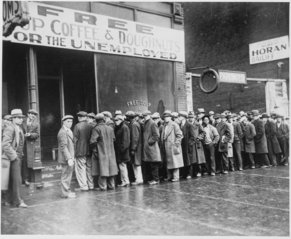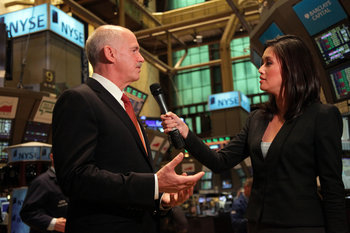
Market Liquidity
Market liquidity is a term for the trading volumes on a market. Generally speaking, a market with many independent buyers and sellers closing many transactions is more competitive than a market with low trading volume. A competitive market typically has such high trading volumes that a single buyer or seller has little influence over price.Perfect Competition
Perfect competition is a theoretical type of market that is so efficient that every participant must accept a market price. This means that all goods are commodities such that consumers see no difference between brands. This generally doesn't happen as many firms work to establish a competitive advantage to stand out in the market such that they don't need to accept a market price.Perfect Information
In order to have perfect competition, you need perfect information whereby all market participants have the same set of facts that are relevant to a transaction at a point in time. In reality this rarely happens, for example a seller of a home typically knows much more about the home and neighborhood than the buyer.Competitive Advantage
Competitive advantage is a capability or asset that allows a firm to stand out in a crowded market. For example, a luxury fashion brand that is able to charge a premium price based in its reputation and brand image.Efficient Market Hypothesis
The efficient market hypothesis is a theory about the stock market that suggests that it is impossible to beat the market as prices always perfectly reflect the probable future earnings of a firm. This assumes that all buyers and sellers have the same information and level of market access such that nobody has any advantage. According to the efficient market hypothesis, individuals who beat the market are simply examples of random chance. In other words, you can get lucky on markets but you can't outthink the collective intelligence of an efficient market.Mr Market
Mr Market is an analogy for the market meant to convey the common observation that the market isn't efficient. It suggests that the market is a noisy and moody neighbor who offers to sell you his house everyday. The price swings wildly from day to day based on Mr. Markets moods. Sometimes he goes on a prolonged period of irrational exuberance whereby his prices are consistently high. At other times, he is depressed and willing to sell low.Free Market
A free market is an idealized market where entities trade without government intervention. Prices and quantities are set by supply and demand driven by the self-interested decisions of buyers and sellers. In this idealized market, despite everyone's self-interested motivations the market works well and efficiently allocates the resources of a nation.Anti-Competitive Practices
A pure free market doesn't function very well because there are many ways that market participants small and large can hinder competition to gain an advantage at the expense of everyone else. Generally speaking, a market requires a well designed and regulated system to function efficiently. Most markets are driven by the self-interested motivations of buyers and sellers with a few rules in place to make things run more smoothly.Market Equilibrium
Market equilibrium is a state of balanced supply and demand. The prices and output quantities of a competitive market are typically close to equilibrium. In a perfectly competitive market, supply always equals demand. As such, there are never shortages or surpluses and prices perfectly reflect the economics of production and value.| Overview: Competitive Market | ||
Type | ||
Definition | An open, fair and liquid market for assets, securities, goods or labor. | |
Related Concepts | ||































